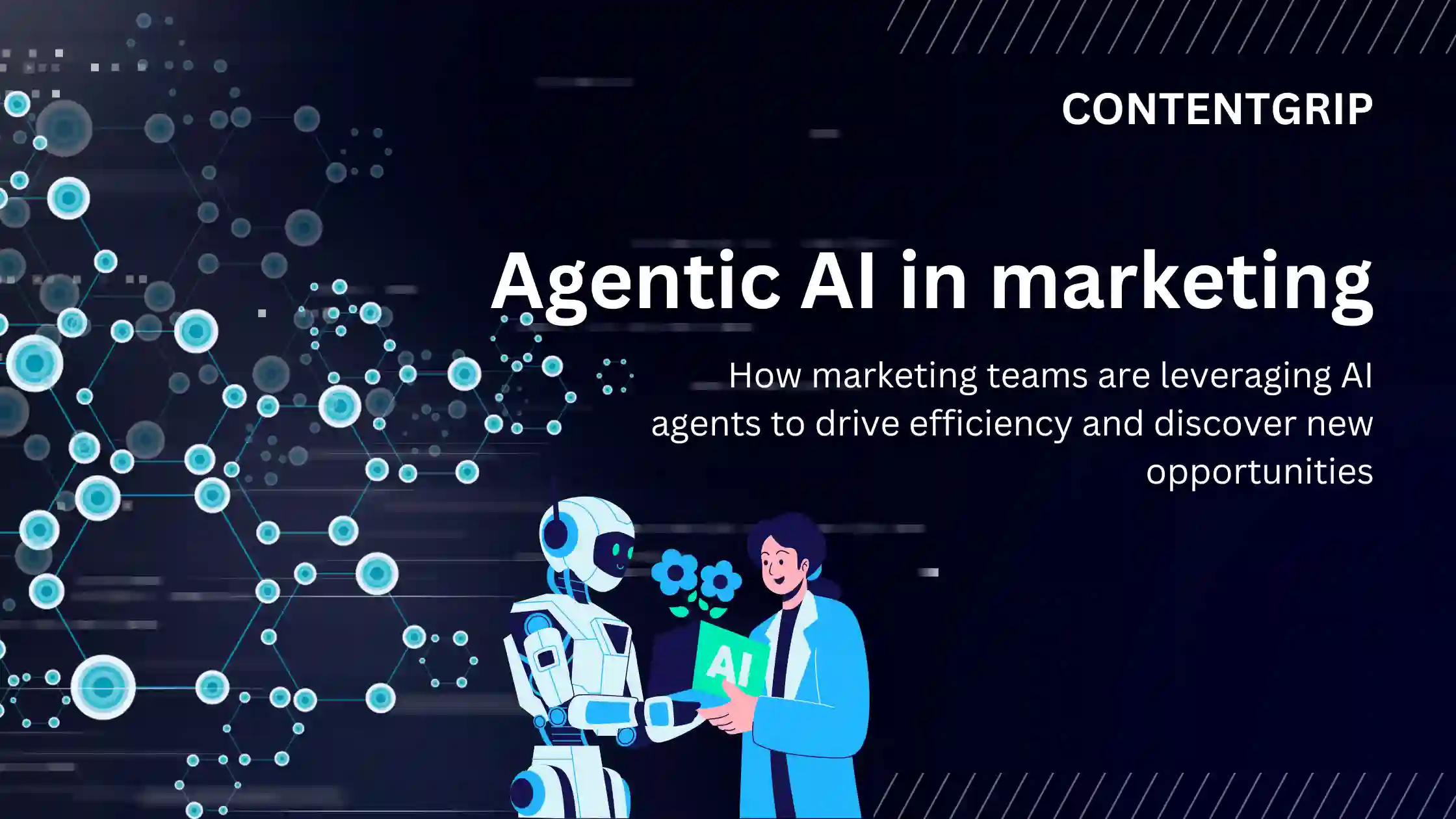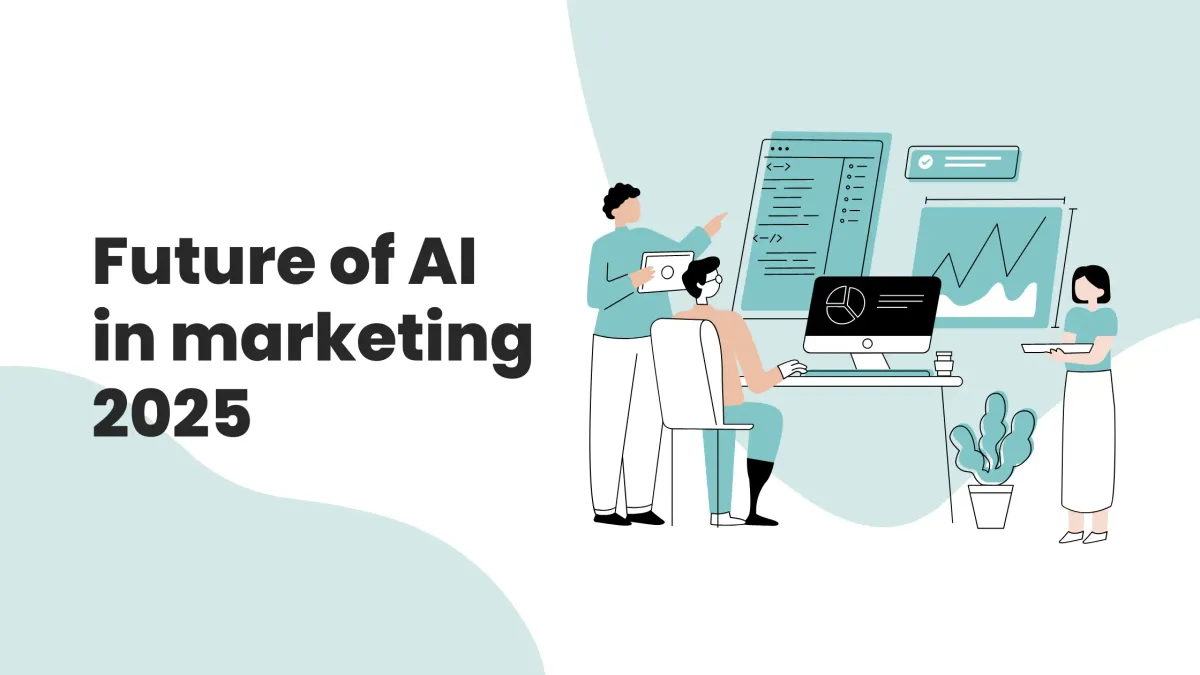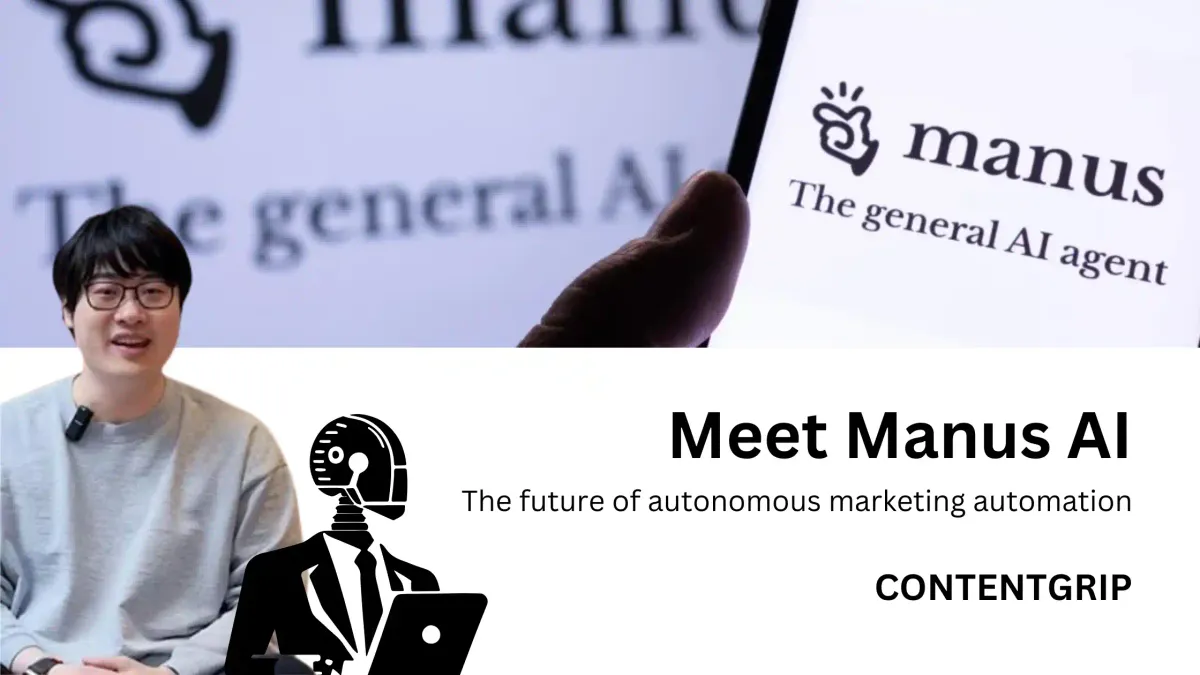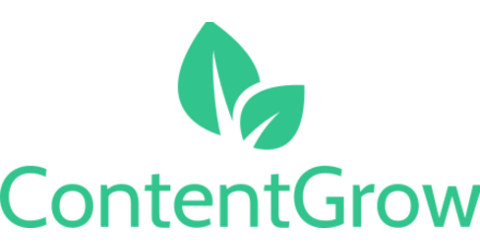AI agents: what marketers need to know
How marketing teams are leveraging AI agents to drive efficiency and discover new opportunities.

Let's face it—marketing tech has always promised the moon but delivered something closer to a desk lamp. But this time, something's actually changing. The evolution from passive AI tools to autonomous marketing agents isn't just another buzzword for your LinkedIn profile—it's changing how we make decisions, allocate budgets, and connect with customers.
I've been watching this space closely, and what's happening now feels different. We're moving beyond glorified spreadsheets that spit out insights you then have to implement manually. Today's agentic AI doesn't just analyze—it decides and acts.
In this article, we'll explore what makes AI truly "agentic," why this shift matters for marketers right now, what this looks like in real-world applications, why the human element remains crucial, and how we can look beyond efficiency to the innovation horizon this technology opens up.
Short on time?
Here is a table of content for quick access:
- What makes AI "Agentic"?
- Why this actually matters now
- What this looks like in practice
- The human element still matters (maybe more than ever)
- Looking ahead: from efficiency to innovation
Beyond the buzzword: what makes AI "Agentic"?
Traditional AI systems function primarily as tools that assist with data analysis and provide insights, requiring human direction to act upon these insights.
In contrast, agentic AI systems are designed to autonomously analyze data, make decisions, and execute marketing tasks. This autonomy allows for real-time responses to market changes and consumer behaviors, enhancing the agility and effectiveness of marketing campaigns.
Think of it this way: your old AI was like having an intern who could crunch numbers all day long but needed explicit instructions for every next step.
Today's agentic AI is more like having a seasoned marketing director who not only understands the data but can make judgment calls and implement solutions without waiting for approval on every detail.
Why this actually matters now
The importance of autonomous decision-making in marketing cannot be overstated. Agentic AI enables personalized customer interactions at scale, optimizes content delivery, and manages complex marketing channels more efficiently.
Early adopters of agentic AI gain a competitive advantage by leveraging these capabilities to enhance customer engagement and operational efficiency.
For instance, Yum Brands, the parent company of Taco Bell, Pizza Hut, and KFC, has implemented AI-driven marketing campaigns that have led to increased purchases and reduced customer turnover.
Let's be honest—we've all sat through meetings where we spent hours debating tiny adjustments to campaign parameters when we could have been focusing on big-picture strategy. Agentic AI takes those routine decisions off your plate.
What this looks like in practice
Spotify doesn't just recommend music based on what you've listened to—their AI autonomously tests different recommendation strategies, measures engagement, and continually refines its approach without human intervention.
They even have a feature called AI Playlist (Beta) that's as simple as typing a unique prompt into the chat, allowing the AI to curate a selection of songs tailored to your preferences. This isn't just a passive suggestion—it's an autonomous system creating personalized experiences with minimal human input.
They've built a system that essentially conducts thousands of micro-experiments every day, learning which recommendation approaches drive the most engagement for different user segments.
Starbucks has implemented an AI system called Deep Brew that autonomously optimizes inventory management, staffing, and even personalized offers through their mobile app.
The system doesn't wait for quarterly marketing meetings to adjust strategy—it's making real-time decisions based on continuously updated customer data.
The human element still matters
Here's where I think many predictions get it wrong. The rise of agentic AI doesn't mean marketing teams will shrink—but roles will transform. The marketers who thrive in this new environment won't be those who can manually optimize campaigns (the AI does that better anyway), but those who can:
- Set meaningful strategic direction that AI can execute against
- Interpret AI insights and connect them to broader business goals
- Provide the creative vision and emotional intelligence that AI still lacks
- Ensure ethical implementation and brand alignment
If your reaction to all this is some combination of excitement and anxiety, you're not alone. I've helped dozens of companies navigate this transition, and the successful ones all share a common approach: they start small, build robust monitoring systems, establish clear boundaries between AI and human decision domains, create feedback loops, and invest heavily in upskilling their teams.
The risks are real—maintaining brand voice consistency, ensuring data privacy compliance, avoiding algorithmic bias, and resisting over-automation of strategic decisions—but they're manageable with the right governance.
Companies that successfully navigate these challenges typically establish clear ethical frameworks and governance models before widely deploying autonomous marketing systems.
They recognize that the goal isn't to remove humans from the equation, but to elevate human contributions to focus on what we do best—strategic thinking, creativity, emotional intelligence, and ethical judgment.
Looking ahead
The first wave of agentic marketing AI has primarily focused on efficiency—doing existing marketing activities faster and with less human effort. But the next wave is where things get really interesting, as these systems begin to identify opportunities that humans might miss entirely.
Imagine an AI that doesn't just optimize your existing campaign structure but suggests entirely new channel strategies based on subtle patterns in customer behavior. Or one that identifies an untapped audience segment with high potential value before your competitors even know it exists.
The marketers who will lead in the next decade won't be those who resist this change or merely accommodate it—they'll be the ones who embrace it as a creative partner, pushing the boundaries of what's possible when human ingenuity and machine intelligence work hand in hand.
Sources
- Spotify. (2025, March 28). AI Playlist. https://support.spotify.com/us/article/ai-playlist/
- AI Expert Network. (2024, February 7). Case Study: Starbucks Revolutionizes the Coffee Experience with AI. https://aiexpert.network/case-study-starbucks-revolutionizes-the-coffee-experience-with-ai/
This post is created by ContentGrow, providing scalable and tailored content creation services for B2B brands and publishers worldwide. Book a discovery call to learn more.







